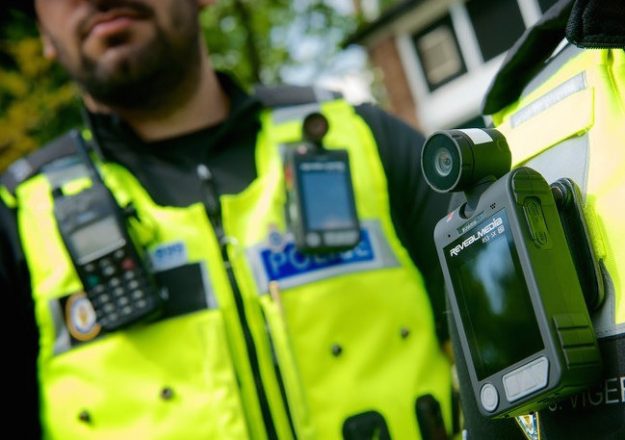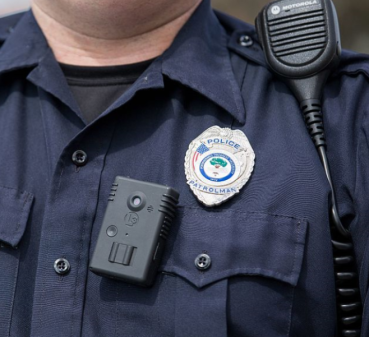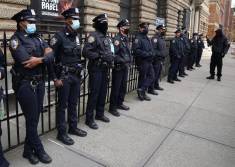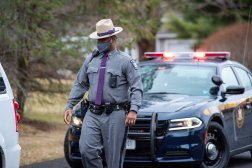States favor existing law over new body camera legislation, study finds

While the vast majority of states use current laws to shield police body camera footage from public disclosure or restrict where officers can record people, only a handful have passed laws specific to the technology, according to a new study.
Researchers with the Urban Institute — a left-leaning think tank focused on economic and social issues — examined laws in all 50 states and Washington, D.C., and worked with lawmakers and law enforcement agencies to understand how they can apply to body-worn cameras. In all, they found that every state but Nevada uses existing public records exemptions to withhold at least some camera footage from the public eye, while 37 states limit the location of recordings for privacy purposes.
However, in examining state legislatures, the scholars found that only nine (and D.C.) have passed legislation specifically governing when and where body cameras can be used. Similar bills are pending in 16 other states, as of the start of 2016. Additionally, only 13 have passed specific laws to limit public access to camera footage.
“We came to realize that a lot of agencies were confronted with pre-existing state statutes, many of which weren’t designed with body worn cameras in mind, and yet really influenced how they were used,” Nancy La Vigne, director of the institute’s Justice Policy Center and one of the report’s authors, told StateScoop. “It’s racing well ahead of policy development.”
Indeed, La Vigne noted that many of the laws already on the books being used to limit the situations where officers can activate their body cameras were originally designed to regulate “eavesdropping or wiretapping.” The researchers also found that 13 refer to statutes that require “two-party” or “all-party” consent for conversations to be recorded in disputes over the technology’s use.
“The advent of body-worn cameras has really raised new questions about how they can be used in light of existing statutes and many agencies are grappling with that and trying to develop policies in light of that,” La Vigne said.
[Read more: Body camera bills explode in popularity among state lawmakers in 2015]
She added that public disclosure of footage is another “thorny” issue surrounding body cameras, “because the whole point of using body-worn cameras is to enhance policy accountability and enhance transparency with the public.” However, absent specific guidelines about what types of footage can be withheld from disclosure, she worries that agencies may using existing laws to justify shielding footage that the public might deserve to see.
While she acknowledged there scenarios where police would be justified in keeping videos confidential, noting that protecting the integrity of an investigation or the identities of victims are two especially pressing concerns for law enforcement, she also cautions that agencies can take advantage of these exemptions.
“There’s a variety of reasons why law enforcement can be exempted and some are more easily justifiable than others,” La Vigne said. “I can envision an agency saying, ‘Well, we’re exempt because anything could be involved in an investigation.’ It certainly gives them an out, as much as it is to protect the integrity of cases that are ongoing and protect the privacy of victims and witnesses.”
To get a better handle on the legal complexities surrounding body cameras, La Vigne observed that several states have passed bills mandating study groups or pilot programs for the technology. The researchers found that seven states and D.C. approved legislation to get more information and develop model policies on body cameras, and similar bills are pending in seven more states.
“That’s good, thoughtful development of sound public policy,” La Vigne said.
La Vigne hopes to see those sorts of measures pick up steam across the country, and she’s optimistic that more states will start to adopt that cautious approach going forward.
However, she also foresees lawmakers increasingly starting to legislate standards for when officers have to turn their cameras on and off.
“These cameras aren’t operating 24/7,” La Vigne said. “They are turned on and off at the discretion of the police officer, and I use discretion loosely. They have some policies they have to abide by, but there’s no clear standards for what that should be.”
Many agencies require officers to record every call for service or interaction with the public, but others try to be more restrictive, due to privacy and data storage concerns. Accordingly, La Vigne believes lawmakers will start setting clearer standards, or mandating the adoption of more advanced technology to provide some consistency.
“I think we’ll be seeing, in short order, cameras that turn on automatically when triggered by certain things, like when a gun comes out of a holster, when the officer’s pulse rate increases by a certain magnitude,” La Vigne said. “There’s all kinds of ways you can do that to take the discretion out of the officer’s hands.”
Contact the reporter at alex.koma@statescoop.com, and follow him on Twitter @AlexKomaSNG.






